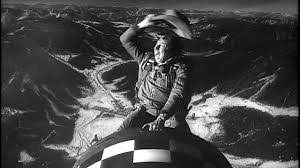Nick Gillespie of Reason Magazine has documented the increasing anti-government opinions of Americans.
“In 1964, according to Pew Research, 77 percent of respondents agreed with the statement that they “can trust the government in Washington always or most of the time.” By 2015, that figure stood at just 19 percent.”
A Gallup poll, conducted regularly since the ’60s, asks respondents whether “big government,” “big business,” or “big labor” is the “biggest threat to the country in the future.” “Big government” has always been the top response, but the margin of fear has grown far wider over time. In 1969, the fraction picking government was around 30 percent. By 2016, it had leaped to 67 percent.
Trust in Congress has steadily declined, from 42 percent in 1973, to 11 percent in 2018. The last time that number cracked 20 percent was in 2005. Confidence in the presidency has dropped from 52 percent in 1975—just a year after Watergate—to the low to mid-30s in recent years. “Imagine: More Americans trusted the presidency a year after Watergate than do now.”
Confidence in public schools has declined from 62 percent in the 1970s to the low 30s today.
And yet cynicism about government hasn’t diminished government. Over the last few decades, Washington’s size, scope, and spending have metastasized. . . . Over the last 50 years, federal spending on a per-capita basis nearly tripled, reaching about $12,000 in 2018. In 1970, federal spending as a percentage of gross domestic product was 18 percent. Since 2008, it has never sunk below 20 percent, a level typically reserved for periods of major wars. . . . The Congressional Budget Office estimates that over the next decade, federal outlays will average 22.4 percent of GDP annually.
Thus, according to Gillespie, critics of government are winning the battle but losing the war. Gillispie wonders if the decreasing trust in government has actually backfired: “A respectable and growing body of research shows that as societies move from relatively high to lower levels of trust, citizens counterintuitively call for greater and greater levels of government involvement in their lives. “Individuals in low-trust countries want more government intervention even though they know the government is corrupt,” summarize the authors of a 2010 Quarterly Journal of Economics paper.


